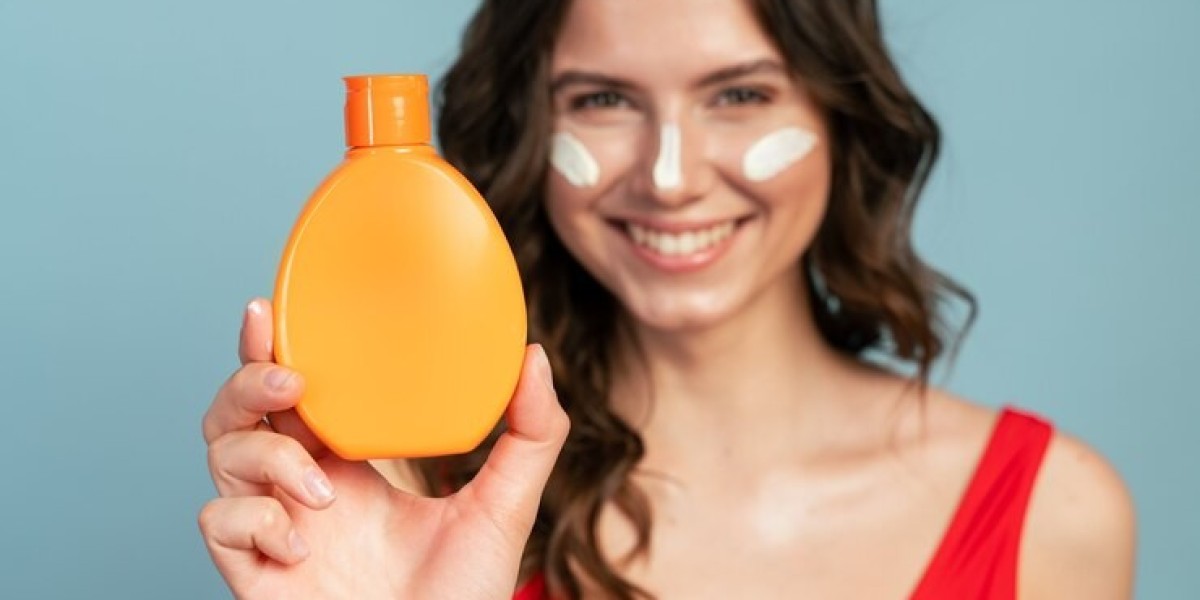Sun exposure, while essential for vitamin D production, can be a double-edged sword. Excessive sun exposure can lead to a host of skin problems, including premature aging, sunburn, and an increased risk of skin cancer. This is where sunblock and sunscreen play a crucial role in safeguarding your skin. In this article, we will explore the differences between sunblock sunscreen, their importance, and how to choose the right product for your skin type.
Understanding the Basics: Sunblock vs. Sunscreen
The terms "sunblock" and "sunscreen" are often used interchangeably, but there are distinct differences between the two. Both products are designed to protect your skin from the harmful effects of ultraviolet (UV) radiation, but they work in different ways.
Sunscreen typically contains chemical ingredients like avobenzone, octinoxate, or oxybenzone. These compounds absorb UV radiation and convert it into heat, preventing it from penetrating the skin. Sunscreens are often lightweight and blend easily into the skin, making them ideal for daily use. However, they may need to be reapplied more frequently, especially after sweating or swimming.
Sunblock, on the other hand, contains physical blockers like zinc oxide or titanium dioxide. These ingredients sit on the surface of the skin and physically block UV rays from penetrating the skin. Sunblocks provide a more immediate form of protection and are typically thicker in texture, often leaving a white cast on the skin. However, they are more durable and require less frequent reapplication.
The Importance of Sun Protection
1. Preventing Skin Cancer
The most critical reason to wear sun protection is to reduce the risk of skin cancer. Prolonged exposure to UV radiation is the leading cause of skin cancer, which includes both melanoma and non-melanoma types. Regular use of sunscreen or sunblock significantly lowers the chances of developing these potentially life-threatening conditions. UV radiation damages the DNA in skin cells, which can lead to mutations and, over time, the development of cancer.
2. Anti-Aging Benefits
Another significant benefit of sun protection is its ability to prevent premature aging. UV rays contribute to photoaging, which manifests as wrinkles, fine lines, age spots, and loss of skin elasticity. The harmful UV rays break down collagen and elastin fibers in the skin, which are responsible for maintaining its structure and firmness. By using sunblock or sunscreen, you can help preserve your skin's youthful appearance and reduce the visible signs of aging.
3. Preventing Sunburn
Sunburn occurs when the skin is overexposed to UV radiation, resulting in redness, swelling, pain, and sometimes peeling. Sunburn not only damages the skin but also increases the risk of developing long-term skin problems. Regular use of sun protection prevents sunburn and ensures that your skin remains healthy and comfortable even under prolonged sun exposure.
4. Maintaining Even Skin Tone
UV rays can lead to uneven skin pigmentation, resulting in dark spots, freckles, or discoloration. This condition, known as hyperpigmentation, occurs when UV radiation stimulates the production of melanin in the skin. By applying sunscreen or sunblock, you can maintain a more even skin tone and reduce the appearance of pigmentation issues.
Choosing the Right Sun Protection
With so many options on the market, selecting the right sun protection for your skin can feel overwhelming. Here are some tips to help you choose the best product for your needs:
1. Broad-Spectrum Protection
Look for products labeled as "broad-spectrum." These sunscreens or sunblocks protect against both UVA and UVB rays. UVA rays penetrate deep into the skin and are primarily responsible for aging, while UVB rays cause sunburn. A broad-spectrum formula ensures comprehensive protection against both forms of harmful radiation.
2. SPF Rating
The Sun Protection Factor (SPF) rating indicates the level of protection a product offers against UVB rays. An SPF of 30 or higher is generally recommended for daily use. For extended outdoor activities, a higher SPF may be necessary. However, it's important to note that SPF does not measure protection against UVA rays, so choosing a broad-spectrum product is essential.
3. Water Resistance
If you're planning to swim or engage in physical activity that causes sweating, choose a water-resistant formula. While no sunscreen or sunblock is completely waterproof, water-resistant products are designed to stay on the skin longer and offer protection during water exposure.
4. Consider Your Skin Type
Different skin types may react differently to sun protection products. If you have sensitive skin, opt for a mineral-based sunblock containing zinc oxide or titanium dioxide, as these ingredients are less likely to cause irritation. For oily or acne-prone skin, look for a non-comedogenic sunscreen that won't clog pores. For dry skin, consider a sunscreen with added moisturizing ingredients to keep your skin hydrated.
Reapplying Sun Protection
One of the most common mistakes people make when using sun protection is failing to reapply it regularly. Sunscreen and sunblock should be reapplied every two hours, especially if you're swimming, sweating, or towel-drying. If you're outdoors for extended periods, it’s essential to make reapplication a habit to ensure continuous protection.
The Skin Lab: A Brand You Can Trust
When it comes to sun protection, choosing a reliable and high-quality brand is crucial for effective results. The Skin Lab offers a range of sun care products designed to cater to various skin types and needs. Their formulations combine both chemical and physical blockers, ensuring maximum protection without compromising on comfort. Whether you're looking for a lightweight sunscreen for daily use or a potent sunblock for extended outdoor activities, The Skin Lab has you covered. By incorporating their sun protection products into your skincare routine, you can enjoy the outdoors while keeping your skin healthy and radiant.
Conclusion
Sun protection is a vital part of any skincare routine. Whether you choose sunblock or sunscreen, both products are essential for protecting your skin from the damaging effects of UV radiation. From preventing skin cancer to reducing premature aging and maintaining an even skin tone, the benefits of using sun protection are undeniable. By choosing the right product for your skin type and ensuring regular reapplication, you can enjoy the sun while safeguarding your skin for years to come. Trusting a reputable brand like The Skin Lab can give you peace of mind knowing that your skin is well-protected and cared for.



